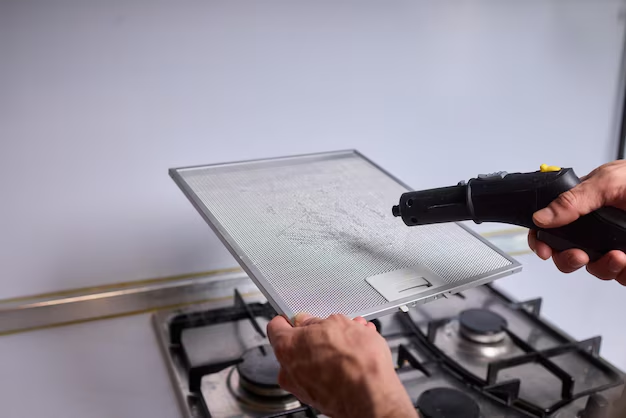How Long Do Refrigerator Water Filters Last? Finding the Right Balance
Picture this: you're standing in your kitchen, pouring a glass of refreshing cold water. But have you ever stopped to wonder about the magic happening inside your refrigerator that ensures each drop is safe and clean? At the heart of it is the often-overlooked hero—your refrigerator water filter. But just how long should this unsung component last? Let's dive into the essentials of maintaining this crucial part of your kitchen for optimal food storage and shelf life.
🤔 Understanding the Role of Refrigerator Water Filters
Refrigerator water filters are designed to remove contaminants from your water supply. They filter out impurities like chlorine, lead, bacteria, and harmful chemicals that can affect the taste and safety of your water. As a result, these filters play a vital role in ensuring that the water you consume directly or use in cooking is free from potential hazards.
What's Inside a Water Filter?
Typically, refrigerator water filters use activated carbon within their filtration process. The porous carbon works by adsorbing impurities and holding them, which prevents them from being released back into the water. This mechanism is highly efficient but also places limitations on the filter’s lifespan—because once saturated, the filter cannot hold any more contaminants.
⏰ Factors Influencing Filter Longevity
The lifespan of a refrigerator water filter isn't fixed; it’s influenced by several factors:
- Water Quality: Areas with hard water or high levels of sediments and minerals can shorten filter life.
- Water Usage: More water passing through means more contaminants to filter, thus a shorter lifespan.
- Filter Model: Different brands and models have varying capacities in terms of lifespan and effectiveness.
- Maintenance Practices: Regular monitoring and timely replacements can optimize filter performance.
Average Lifespan of Refrigerator Water Filters
A standard guideline suggests replacing your filter approximately every six months. However, this can vary based on the above factors. Therefore, it's crucial to consult your refrigerator’s manual for specific recommendations regarding filter upkeep.
🚦 Recognizing the Signs of Filter Replacement
While six months is a general rule of thumb, there are clear signals that indicate it may be time for a replacement sooner:
- Changes in Water Taste or Smell: If your water starts to taste or smell off, it's a prime indicator.
- Decreased Water Flow: Slower than normal water flow might mean the filter is clogged.
- Indicator Lights: Many modern refrigerators come equipped with indicator lights that notify you when it’s time to change the filter.
🛠️ The DIY Guide to Replacing Your Filter
Changing a refrigerator water filter is a task you can typically handle yourself, saving you time and the cost of a professional visit. Here’s a simple step-by-step guide:
- Locate the Filter: It’s usually found in one of three places—grille, upper right-hand corner of the interior, or behind the refrigerator.
- Turn Off the Water Supply: This is more of a cautionary step to prevent leaks.
- Remove the Old Filter: Twist the filter counterclockwise or pull it out, depending on the model.
- Install the New Filter: Follow instructions specific to your model. Generally, this involves inserting and locking it in place.
- Restart the Water Supply: Make sure everything is securely in place, then turn the water back on.
- Flush the System: Run several cups of water through the new filter to clear any harmless carbon particles.
💡 Tips for Maximizing Filter Efficiency
- Pre-filter Your Water: Using a pre-filtration system can enhance your refrigerator filter’s lifespan.
- Monitor Water Usage: Be conscious of the water you use, which helps track when a replacement might be necessary.
- Schedule Replacements: Mark your calendar for reminders every six months.
🚰 Beyond Filter Replacement: Water Quality and Health
Ensuring the longevity of your water filter is just part of maintaining high water quality. Here are additional steps for enhancing the water you consume and its impact on food safety:
Implementing Additional Water Quality Measures
- Whole House Filters: These are installed at the point of water entry into your home and can pre-filter water for added assurance.
- Regular Plumbing Checks: Ensure your home’s plumbing is in good condition to prevent potential contaminants from infiltrating your water system.
Foods and Shelf Life: Impact of Water Quality
Believe it or not, the quality of water you use can affect food preservation and safety:
- Ice Quality Impact: Clean ice is crucial, as ice made with filtered water prevents spoilage and maintains taste.
- Cooking and Baking: Using pure water can enhance the integrity and taste of your dishes.
- Storage Durability: Quality water can preserve the texture and flavor of frozen items better than unfiltered water.
💡 Quick Summary: Key Takeaways
Here’s a quick reference of essential tips and insights regarding refrigerator water filters:
- 🕐 Typical Replacement Schedule: Every six months.
- 🚰 Change Indicators: Taste, smell, water flow, or indicator lights.
- 🔧 Replacement Process: A simple DIY task if guided by your model’s manual.
- 📅 Maintenance Tips: Pre-filtering, regular usage monitoring, and scheduling can enhance lifespan and performance.
- 🌱 Beyond Filtering: Quality water impacts overall food safety and shelf life substantially.
Maintaining your refrigerator's water filter might seem like a small task, but it plays a significant role in ensuring your household's health and safety. By understanding when and how to replace this crucial filter, you empower yourself with cleaner water and, in turn, a cleaner lifestyle. So, the next time you sip on a glass of cold water, smile knowing you’ve taken every step to keep it pure and refreshing!

